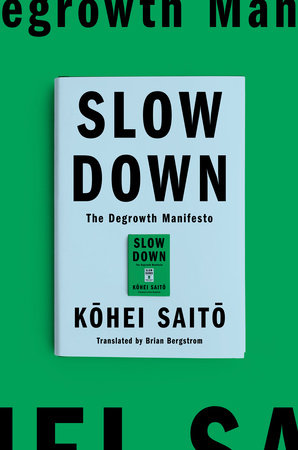loppear reviewed Slow Down by Brian Bergstrom
growth will kill us faster, and marx maybe knew it too?
3 stars
Two fascinating books smooshed together, neither what I was expecting, both earnest enough. First, a very readable light explanation that "green growth" and any ecological turn that leaves capitalism in place will be insufficient to avoid extractive exploitation beyond ecological limits we're facing. Second, a niche academic journey through Marx' years after Capital Vol 1 arguing from thin circumstance that he too realized some of the ecological necessities of degrowth rather than unerring progress. If that's what you needed to hear to slow down, well ok!
Two fascinating books smooshed together, neither what I was expecting, both earnest enough. First, a very readable light explanation that "green growth" and any ecological turn that leaves capitalism in place will be insufficient to avoid extractive exploitation beyond ecological limits we're facing. Second, a niche academic journey through Marx' years after Capital Vol 1 arguing from thin circumstance that he too realized some of the ecological necessities of degrowth rather than unerring progress. If that's what you needed to hear to slow down, well ok!


